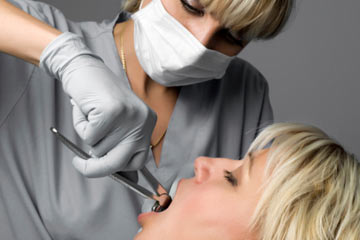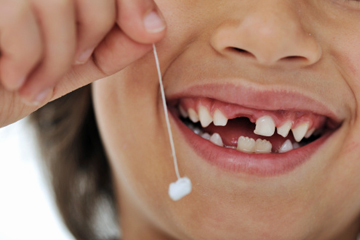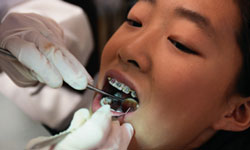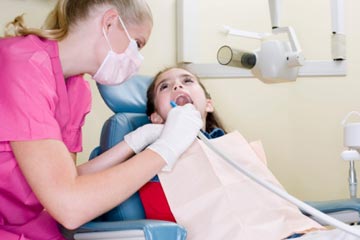
They are to the mouth what tonsils are to the throat, or what your gall bladder is to your abdomen. But while tonsils or gall bladders are rarely removed unless they present a physical problem, wisdom teeth almost always have to come out. Extractions are routine and nothing to fear, but you should be informed about the procedure so you’re prepared and ready to handle the recovery as efficiently as possible.
Wisdom teeth — aka third molars — are the teeth at the farthest most part of your upper and lower rows of teeth. The term "wisdom" has been used to characterize these teeth since the 1600s. Initially, they were called "the teeth of wisdom" and, by the 1800s, "wisdom teeth." The teeth, of course, don’t make you any smarter but they tend to appear later in life than any other teeth — mid-teens to mid-20s, typically. Presumably, a person is wiser when they have reached adulthood, resulting in the terminology [source: Dentistry & You].
Anthropologists believe wisdom teeth were useful to early man, who had a much different diet than we do today. He didn’t sit down to a bowl of soup with a spoon or eat mashed potatoes with a fork. Ripping meat, grinding roots and chomping on nuts would’ve been more common and that would have resulted in extensive wear, making wisdom teeth quite valuable [source: Cooper]. It’s also believed that wisdom teeth often come in at odd angles or remain impacted because the human jaw has become smaller with time, resulting in overcrowding [source: Cooper].
Interestingly, dentists and oral surgeons may encourage the removal of wisdom teeth even if they come in perfectly and don’t crowd existing teeth. That’s because it’s difficult to clean these teeth due to their remote, hard-to-reach location. It’s common for bacteria to build up, which can lead to infection. As a result, approximately 85 percent of the population requires the removal of their wisdom teeth [source: Cooper].
So, when should you have your wisdom teeth extracted? Generally, the sooner the better. Teeth, like trees, grow more extensive root systems as they grow and age. It will likely be easier to remove your wisdom teeth when you’re younger. If the roots eventually connect with bone or even sinus tissue, the procedure will become more difficult and, potentially, much more painful [sources: WebMD; Cooper].
Wisdom tooth removal is more complex than simply pulling a tooth. It will require some level of sedation involving a local anesthetic, intravenous sedative or general anesthetic. The procedure itself usually isn’t painful [source: American Association of Oral and Maxillofacial Surgeons]. But after the anesthetic wears off, that could be another story. Depending on whether your wisdom teeth are impacted — below the gum line — cutting and stitching may be involved.
Contents
- Wisdom Tooth Extraction Recovery
- Wisdom Tooth Extraction and Infection
Wisdom Tooth Extraction Recovery
Most people are less concerned with how the extraction is performed and more concerned with how it will feel and how long the recovery will take. Because you’ll be sedated, it’s unlikely you’ll experience pain during the tooth removal process. But, while wisdom tooth extractions are routine, you’ll need to take your recovery seriously or else experience unpleasant and painful consequences.
Your doctor will likely give you pain medication to help ease your post-extraction discomfort. Bed rest is necessary for at least the first 24 hours following wisdom tooth removal, and you should avoid exercise for three to four days [source: Virginia Oral and Facial Surgery]. The combination of a few hours rest and pain medication may make you overly optimistic about returning to your normal activities. This is common, but if you’re tempted to return to your normal routine in less than 24 hours, you’re asking for trouble. The more you move, the more blood will pulsate to the already sensitive areas.
Bleeding can occur during the first couple of days post-removal, and swelling in the mouth and cheeks may be apparent for several days. Your oral surgeon will give you gauze to place over the sutures or area where the wisdom teeth were extracted. In addition, there may be bruising on your face. Ice packs can be helpful during the recovery, too [source: Virginia Oral and Facial Surgery].
Because your mouth will be quite sensitive, soft foods like mashed potatoes, soups or even cool nutrition like smoothies are good choices. You’ll also want to avoid nuts and seeds for as much as six weeks following wisdom tooth extraction [source: Virginia Oral and Facial Surgery].
To speed the recovery and prevent infection, continue good oral hygiene. You can even brush your teeth the night after surgery; just remember to avoid the extraction area.
With attention to your doctor’s orders, you should have a swift and uneventful recovery.
Wisdom Tooth Extraction and Infection
Complications from wisdom tooth extraction are quite rare. In fact, less than 2 percent of patients who have their wisdom teeth removed have unexpected health issues [source: WebMD]. Perhaps the most significant potential complication is infection.
Some people are simply more prone to infection than others. If you have a pre-existing medical condition that has weakened your immune system, your doctor may prescribe antibiotics before and after having your wisdom teeth extracted. If you or your doctor don’t guard against infection, there’s the small possibility that bacteria could enter your bloodstream during the removal process, leading to more serious health problems involving vital organs like the heart or kidneys.
Women who take antibiotics should be aware that the medication can disrupt the effectiveness of oral birth control. Your doctor will likely recommend that you use a second form of birth control until you have completed the entire course of antibiotic treatment [source: Virginia Oral and Facial Surgery].
If you don’t have a weakened immune system, much of the potential for infection is within your control. For example, smokers should avoid the practice for at least 24 hours following extraction [source: WebMD]. Continuing to keep your mouth clean by brushing your teeth and tongue will prevent the risk of infection. Avoiding physical activity for several days following wisdom tooth extraction will promote the healing process. You can also avoid complications arising from infection by leaving the wounds alone as much as possible. Touching the affected areas with your fingers or tongue may be tempting but can’t help in your recovery. Aside from changing out gauze, the sutured area should be avoided. Remember, too, to rinse your mouth gently with warm water and avoid sucking (using a straw) or spitting, which can interrupt healing [source: WebMD].
In most cases, it’s wise to have those wisdom teeth of yours removed, and by leaning on a trained dental professional’s knowledge and care, you can expect the extraction procedure and recovery to go smoothly. Ready to learn more? We have lots more information on the next page.
Don’t Spit
Rinsing your mouth with warm salt water several times a day can also help with hygiene, but avoid spitting as you could agitate your wounds. Simply lean over a sink and allow excess liquids to spill out [source: Virginia Oral and Facial Surgery].





